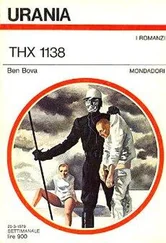Ben Bova - Able One
Здесь есть возможность читать онлайн «Ben Bova - Able One» весь текст электронной книги совершенно бесплатно (целиком полную версию без сокращений). В некоторых случаях можно слушать аудио, скачать через торрент в формате fb2 и присутствует краткое содержание. Год выпуска: 2010, ISBN: 2010, Издательство: Tor Books, Жанр: Триллер, на английском языке. Описание произведения, (предисловие) а так же отзывы посетителей доступны на портале библиотеки ЛибКат.
- Название:Able One
- Автор:
- Издательство:Tor Books
- Жанр:
- Год:2010
- ISBN:978-0-765-32386-6
- Рейтинг книги:4 / 5. Голосов: 1
-
Избранное:Добавить в избранное
- Отзывы:
-
Ваша оценка:
- 80
- 1
- 2
- 3
- 4
- 5
Able One: краткое содержание, описание и аннотация
Предлагаем к чтению аннотацию, описание, краткое содержание или предисловие (зависит от того, что написал сам автор книги «Able One»). Если вы не нашли необходимую информацию о книге — напишите в комментариях, мы постараемся отыскать её.
Able One — читать онлайн бесплатно полную книгу (весь текст) целиком
Ниже представлен текст книги, разбитый по страницам. Система сохранения места последней прочитанной страницы, позволяет с удобством читать онлайн бесплатно книгу «Able One», без необходимости каждый раз заново искать на чём Вы остановились. Поставьте закладку, и сможете в любой момент перейти на страницу, на которой закончили чтение.
Интервал:
Закладка:
We can’t have all thirty satellites going down at once, Scott said to himself, trying to remain calm. Must be a power failure here in the building.
But the big map was still lit, and a glance at the lights and gauges of his console told him that electrical power was normal, and the backup power system was in the green too.
A couple of the other engineers were getting up from their consoles, confusion and outright fear on their faces.
“What’s going on?” one of them asked.
As if I know, Scott said to himself.
“How can all thirty birds go down at once?”
Something very bad is happening here, Scott realized. Something terrible.
His console phone buzzed. Picking it up automatically, his eyes still on the dead screens, Scott heard the angry voice of the news bureau’s chief:
“We’re off the air! How the fuck can we be off the air in the middle of the sports report?”
In London, Sir Mallory Hyde-Grosvener was pacing up and down his office, desperately trying to get a phone connection to Singapore. He had pulled off his tweed jacket ten minutes earlier, crumpled it into a ball, and thrown it with main force against the wall where the portrait of his grandfather hung watching him with hard unblinking eyes. Through his office window he could see chaos on the floor of the market, absolute chaos. All the boards were down; where up-to-the-second market numbers should be flashing there was nothing but dead darkness. Every bloody man on the floor had a telephone jammed to his ear, red-faced and screaming.
Sweating, his impeccable gray tie pulled loose from his collar, he bellowed into his own dead phone while his grandfather’s image frowned sternly at him.
Colonel Brady Desilva was also sweating heavily as he sat in the command center at NORAD headquarters in Cheyenne Mountain, Colorado.
“They’re all out?” he asked, his voice already hoarse from yelling at his staff officers.
Captain Nomura nodded. “Almost, sir. Four commsats are still on the air, but they’re in and out. Sputtering, kind of.”
“Sputtering,” DeSilva echoed darkly.
Nomura was normally unflappable. But even his usually deadpan face was sheened with perspiration, his dark eyes blinking nervously.
“The milsats are okay, mostly, sir,” the captain said. “But the commercial birds have gone dead, just about all of them.”
“Half our communications traffic goes through those commercial satellites,” DeSilva muttered.
“The early-warning system is functional,” said the captain, trying to sound cheerful. “If anybody tries to attack us while the commercial birds are down, we’ll spot them right off.”
DeSilva growled at his aide. “And how the hell will we get the warning out? Carrier pigeons?”
General “Bernie” Bernard had been holding the phone to his ear for so long he felt as if it had taken root in his skull. He was pacing behind his desk, too edgy to sit.
To his credit, he and his staff at Space Command headquarters had not panicked when the satellite communications system started to break down. But he was scared; for the first time in his life, this former B-52 pilot who had flown combat missions over Bosnia, Iraq, and Afghanistan was scared.
At last a voice crackled, “The President is coming on the line now.”
A click. Oh shit, Bernard thought. It’s gone dead again.
But then a crisp voice said, “General Bernard.” Bernard automatically stiffened to attention. “Mr. President.”
“What’s going on?”
“All the commercial satellites over this hemisphere have gone dark, sir.”
“I know that. What about—”
“The birds orbiting over the other side of the planet are degrading rapidly. They’re dying, one by one.”
“Jesus.”
“As you know, sir, yesterday we tracked an unannounced rocket launch from North Korea. We went on alert, but the bird went into a geosynchronous orbit, twenty-two thousand miles up. It was a satellite, not a missile.”
“So?” the President demanded.
“Three hours ago there was a nuclear detonation at geosynch altitude. The electromagnetic pulse from the explosion knocked out almost all the unhardened satellites over our half of the globe.”
“The communications satellites?”
“Commsats, yessir. Weather satellites too. Landsats, ocean surveillance—they’re all down, sir.”
“But your military satellites are protected, aren’t they?”
“Yes, sir. Most of them. A few of the older ones have gone dark, but the others seem to be holding up. So far.”
“Our military communications, the early-warning satellites, they’re all okay, aren’t they?” “For the most part, sir.”
A heartbeat’s pause. Then, “What do you mean, ‘for the most part’?”
General Bernard replied, “Sir, our communications needs have grown a lot faster than our milsats can support. The Department of Defense has been using commercial commsats for almost half its day-to-day traffic.”
“And now those commsats are down.”
“Yes, sir.”
Again a pause. Then the President asked, “What about satellites on the other side of the world? Over Russia, China?”
“They’re degrading, sir. It’s not just the EMP that kills ‘em. The nuke puts out a big cloud of energetic particles, too: high-energy electrons, protons. They bounce around along Earth’s magnetic field lines like Ping-Pong balls. Those particles can kill unhardened satellites, too.”
“So what you’re telling me is that we’re back to 1950, as far as telephone communications are concerned.”
“Television, too, sir. Computer networks. Anything that uses satellites to relay information or data. All kaput.”
For several long moments the President said nothing. Then he asked, “Is this the first strike in a war, General?”
General Bernard hesitated, then answered, “It’s a good way to start a war, sir. Pearl Harbor, in orbit.”
Elmendorf Air Force Base, Alaska
Harry Hartunian was having the same nightmare again.
He was at the test center out in the desert, standing in the control room as the team powered up the big laser. Through the thick safety glass of the observation window he could see the jumble of tubes and wires, the stainless steel vat that held the iodine, the frosted tank that contained the liquid oxygen, the complex of mirrors and lenses at the output point where more than a million watts of invisible energy would lance across the desert floor to the target, half a mile away.
Five technicians were at their posts, but Pete Quintana was out beside the optical bench on the other side of the observation window, right in the middle of the laser assembly. Pete was worried about the effect of the rig’s vibration on the sensitive optical setup. Quintana.
“Iodine pressure on the button,” one of the technicians in the control room called out.
Don’t pressurize the oxy line, Harry warned. In his nightmare he tried to say the words out loud, but not a sound came out of his mouth. The tech was sitting five feet away from him, but he couldn’t make him hear his warning.
“Electrical power ramping up,” another technician said.
“Optical bench ready.”
“Atmospheric instability nominal.”
“Adaptive optics on.”
“Iodine flow in ten seconds.”
“Oxygen flow in eight seconds.”
Don’t pressurize the oxy line, Harry tried to scream. But he couldn’t speak, couldn’t move, couldn’t do anything but watch them go through the same disaster again.
“Pressurizing iodine.”
“Pressurizing oxy.”
“No!” Harry screeched.
The explosion knocked him against the back wall of the control room, shattering his ribs against the gauges mounted on the concrete. Pain roared through Harry as the laser blew up in a spectacular blast that knocked the roof off the test shed. The heat from the oxygen-fed fire poured through the safety glass of the observation window, hot enough to melt the gauges on the back wall.
Читать дальшеИнтервал:
Закладка:
Похожие книги на «Able One»
Представляем Вашему вниманию похожие книги на «Able One» списком для выбора. Мы отобрали схожую по названию и смыслу литературу в надежде предоставить читателям больше вариантов отыскать новые, интересные, ещё непрочитанные произведения.
Обсуждение, отзывы о книге «Able One» и просто собственные мнения читателей. Оставьте ваши комментарии, напишите, что Вы думаете о произведении, его смысле или главных героях. Укажите что конкретно понравилось, а что нет, и почему Вы так считаете.












